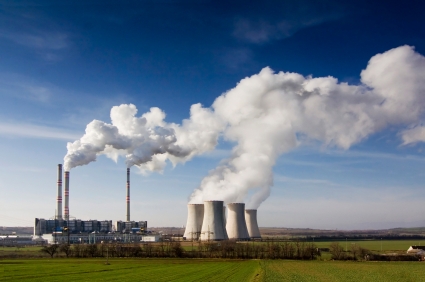The new Kerry-Boxer Clean Energy Jobs and American Power Act gives progressives a second chance to influence climate legislation, if we learn the right lessons from both the legislative process for the House climate bill and the ongoing health care debate.
Many progressives have varying degrees of frustration with both processes, but the fact is the progressive grassroots has had more impact in the health care debate than the climate debate.
With health care, progressives picked their target and picked it early: the public option. There are a myriad of elements to health care reform, but focusing on one fundamental, easy to understand component channeled grassroots energy.
The push for the public option — an idea that wasn’t even in existence two years ago — began before any bill was even drafted. Most progressive organizations, led by the Health Care for America Now coalition, prioritized the public option and launched grassroots actions that put pressure on lawmakers. Progressive media outlets put their spotlight on the early legislative maneuvering around public option, letting progressive citizens know that their efforts were needed and who needed persuading.
Now, four bills that have cleared House or Senate committees include a public option. The Senate Finance Committee may have rejected it. The final outcome remains uncertain. But it is indisputable that early, focused activism allowed progressive voices to be heard when it mattered, making a significant impact.
The House climate bill process was another story. Environmental groups were split on policy objectives. There was no single policy target to focus grassroots energy. Progressive media outlets, as well as traditional media, ignored the early legislative maneuvering. Progressive citizens simply had no idea that climate deals were being worked out, and so, we missed our chance to influence the negotiations.
Rep. Henry Waxman, climate bill point person with unquestionable progressive credentials, was left with no grassroots wind at his back while working with the significant number of Democrats from coal, oil and agriculture producing districts. He did the best he could to compromise without undermining the integrity of the carbon cap. I argued the compromise passes the threshold of acceptability, but many progressives were surprised and frustrated upon learning of the compromises to the fossil fuel lobby.
Regardless of your support for the House bill, it is indisputable it would have been a better bill if the progressive grassroots were engaged earlier and focused on a clear target.
Now, the process starts anew in the Senate with the Kerry-Boxer bill.
Fortunately, Sens. Barbara Boxer and John Kerry did the right thing to spark grassroots energy. They introduced a stronger bill than the House version, in defiance of the conventional wisdom than any Senate bill would have to weaker than the House.
Despite the nonsensical whining and ingratitude from coal-state Dem senators, who pretended that Rep. Waxman didn’t spend months crafting difficult compromises with fossil fuel interests specifically to make them happy, Sens. Boxer and Kerry embraced a more aggressive short-term target for cutting greenhouse gas emissions — 20 percent below 2005 levels by 2020, versus 17 percent in the House bill — and restored EPA authority to regulate emissions.
So we are not just playing defense in the Senate. We can get back on offense. And offense is more enticing for the grassroots.
But to play effective offense, you need to know what the goal is.
The environmental community remains split — roughly between those who believe we immediately need a drastically more aggressive bill to get the world under 350 parts per million of CO2 in the atmosphere, and those who believe a bill that would keep us from reaching 450 at least gets us started and establishes a framework for even bolder action later.
But those organizations more inclined to support the basic framework of pending legislation appear to be coordinating better among themselves, having forged a new Clean Energy Works coalition.
However, the question remains if they plan to pick a single policy goal to channel grassroots energy towards. The 20% short-term target for cutting emissions? EPA authority to regulate emissions? Maybe going after the coal subsidies or potential loopholes in the carbon offset provisions.
Good arguments could be made for any of those, and it’s not for one blog post to arbitrarily decree what the best target would be.
But I do contend the lesson from the past year is that single target is needed, if we are best channel grassroots energy.
And without grassroots energy, it will be extremely hard to pressure the 18 Democratic senators from coal country that can deny us even a simple majority. Ask Henry Waxman.
Originally posted at OurFuture.org




